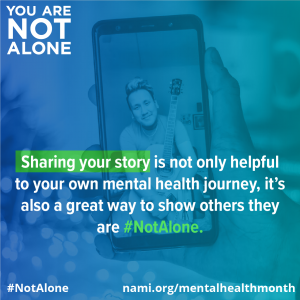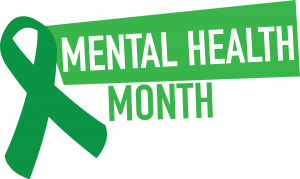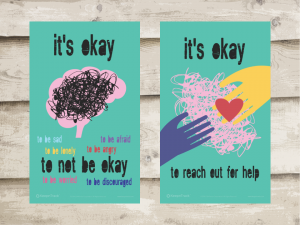TL;DR:
- We must recognize that teachers have done a lot to empathetically support students and their families since the pandemic hit.
- Some tips: You don’t have to struggle alone; seek help from a professional if needed. Zoom out to see the bigger picture. Take time for yourself and don’t wait until you run out of gas and are running on empty. It’s ok to feel your feelings. Don’t be afraid to share your vulnerabilities.
- Reach out and get help. The Teach Better Team is here to support you.
- Life is messy and stressful. You will have a lot of feelings. It is ok to take time for yourself. Self-care should be part of your daily routine. You can’t give to others if your tank is empty.
 We know that educators are amazing people. They show so much empathy and compassion for their students and one another.
We know that educators are amazing people. They show so much empathy and compassion for their students and one another.
They dedicate hours upon hours to plan lessons that engage students, meet their varied needs, cover the appropriate standards, prepare them for high stakes testing, and keep students curious and excited about school.
Teachers are also reaching out to parents, providing extra help for students in need, attending trainings, and learning what best practices they should be using daily in their schools and classrooms.
Let’s not forget the rest of their workload that has included just about everything this past year; shifting to changing guidelines, keeping everyone safe, communicating with families, learning new technology skills, switching between synchronous, asynchronous, hybrid, and live streaming instructional models, rearranging all of their classroom furniture (and then again or taking most of their materials home to make social distancing space in the classroom) and this list goes on and on.

But teachers have even MORE to deal with.
We haven’t even mentioned that they become a support system to students. They listen, check in, make sure meals go home, provide a safe person for students, as these students struggle with more and more challenges at home. These challenges have come to the surface even more during the pandemic. We are seeing the inequities among families, such as food insecurities, loss of jobs and income, increased family stresses, substance abuse, other neglect, and abuse which can lead to trauma.
Life is messy and stressful. Teaching is messy and stressful. It is ok to take time for yourself. Self-care should be part of your daily routine. You can't give to others if your tank is empty. Share on X
Compassion Fatigue
Teachers care about their students and only want what is best for them. They show their empathy and compassion on a daily basis. This is where the term ‘compassion fatigue’ comes in. This is just one of the stressors educators deal with that takes a toll on their mental health. Teachers don’t forget about their students when they go home at the end of the day. They worry, think of ways to help their students, and don’t stop. We’ve even heard stories of educators that become foster or adoptive parents to students. Educators teach with heart.
Your Mind Matters: Don’t Struggle Alone
I was recently listening to Brene Brown’s Dare to Lead podcast episode with guest Angela Duckworth. This was an episode focused on grit and trying new things. However, about three quarters of the way through the episode, Brene and Angela were discussing therapy and mental health.
They shared that we all go through pain and struggle but some people get help for it and others take it out on other people. I think it’s important for all of us to realize that going through pain and struggles is part of this thing called life. It’s all about ups and downs like a roller coaster. A roller coaster wouldn’t be a roller coaster without some rises, dips, sharp turns, and drops that give you butterflies. Life is the same way.
It makes me wonder why we are not using or teaching coping skills or why we don’t go to therapy as a normal part of our routine. Why is therapy seen as a negative (coming from a former guidance counselor and therapist) instead of something that is celebrated? We all need someone to talk to and there are many times we want to talk to someone who is unbiased and not the teacher down the hall. We don’t want to compare how bad our days are, but just talk it out with someone.
Your Mind Matters: Zoom Out
When you’re having a difficult time or stressed, remember, you’re just seeing part of the picture. Sometimes you just need to zoom out and see the whole picture. We get caught up in just that one part of the picture.
Try this:
Notice how you’re feeling (good or bad)… can you label the feeling?
Sit with it. Do you understand the feeling?
Put things into perspective.
Sometimes changing the perspective can help. Ask whether this is a small feeling or a big feeling; is it a big issue or a small issue? Will this matter in a week or a month?
It can be hard for us to zoom out when we are in the middle of feeling our emotions. We start to focus on the small parts and get stuck there. We need to try and see the larger picture.
Your Mind Matters: Fill Your Tank
Don’t wait until your car runs out of gas before you fill it back up again. That is the same advice we need to take as educators. We continue to give and give until we are on empty. It takes more energy to refill your tank when you allow it to empty completely. What do you do to keep your tank full? There are many apps for meditation or to take a few minutes to breathe. Maybe you do better taking a quick walk outside in the fresh air, sunshine, or being in nature. Do you make time for things that you enjoy outside of school?
Your Mind Matters: It’s OK to Feel
As educators (or just as people) we have a really hard time recognizing, understanding, and labeling our own feelings. How often have you used the word ‘good’ to describe how you are feeling? Good is not technically a feeling word but it’s the go to for most of us and our students.
It’s ok to feel our feelings. Yes, you read that correctly. It’s ok to feel your feelings and whatever those feelings are, just FEEL them. Remember that we all have feelings but we don’t have to let those feelings define us. We can also use strategies to cope with or change those feelings.
As adults, we have a difficult time recognizing, understanding, and labeling our feelings. Imagine how hard it is for our students.
Your Mind Matters: Why Are We Uncomfortable?
I was recently preparing activities to recognize Mental Health Awareness Month. I was reviewing statistics and found myself uncomfortable as I decided what I actually wanted to share with my school community. Imagine that, I, someone with a background in psychology and counseling, had a hard time sharing the astonishing statistics around mental health issues in our country. No one wants to look at suicide rates, especially when they feel helpless to do anything to change it. This brings up its own set of emotions.
We all have to do a better job of sharing our vulnerability. We should all have a friend or person to talk to informally or professionally. This type of support is important. As educational leaders, how can we support our staff more? How can we model taking care of our own mental health?
How can we make the idea of taking a mental health day during the school year or being given the opportunity to tag out when needed the norm and not an anomaly in schools?
[scroll down to keep reading]
Your Mind Matters: Mental Health Crisis
As a result of this pandemic, we are going to see a mental health crisis in schools (and everywhere). This has been a difficult time for parents—keeping their children safe, worrying about their learning, taking care of family members. For some of our educators, they are feeling the stressors of parenthood along with their stress of being a teacher during these times.
Depression and anxiety have increased and many of us are feeling burnt out. We were June tired in October.
How are we supporting each other during this pervasive time of uncertain feelings? Why do we feel shame about feeling shame? Don’t feel guilty that you don’t have it all figured out. Stop feeling that your struggle isn’t as bad as someone else’s and think that you shouldn’t get help. We need to stop the comparative suffering and start taking care of ourselves.
Your Mind Matters: Reach Out & Get Help
Who do you have that you can reach out to? Do you have that friend, confidante, mentor, coach, or even a therapist that allows you the time and space to share what is stressing you out so that you can work toward feeling your feelings and being ok with what you’re feeling right now? Reach out. Don’t go it alone. I’m here for you. The whole Teach Better Team is here for you. We’re here so no one has to be alone.
Remember this: life is messy and stressful. Teaching is messy and stressful. You will have a lot of feelings. It is ok to take time for yourself. Self-care should be part of your daily routine. You can’t give to others if your tank is empty.
About Bobbie French
Bobbie French is an educational leader, presenter, and writer from Massachusetts.
Bobbie has been an educator for over 24 years. She has been an elementary guidance counselor, classroom teacher, special education coordinator, Title I Director, Preschool Director and Administrator.
Bobbie is passionate about focusing on the whole child and creating an environment where all students have a sense of belonging. She appreciates and recognizes the hard work of teachers, and is committed to supporting others to be their best for kids every day. Her passion and enthusiasm for creating a positive and engaging school culture is contagious.
Bobbie is also an avid photographer and loves to tell her school’s story.




